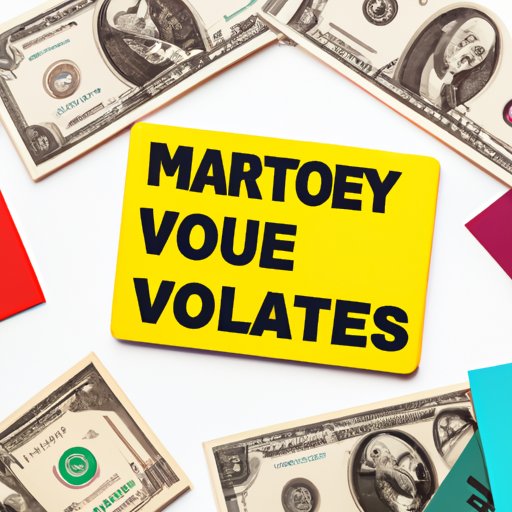
I. Introduction: The Fascinating World of Monopoly
Monopoly is a timeless game that has been around for generations. It’s a classic board game that has taught players about money management, finance, and real estate, among other important skills. But how much money do you get on Monopoly? In this article, we’ll explore the basics of Monopoly, including how much money each player starts with, how much can be earned during gameplay, and strategies for maximizing profits. We’ll also delve into the value of Monopoly money compared to real money, the psychology of Monopoly and the history of the game’s currency. Whether you’re an experienced player or just starting out, this article will help you understand the value of Monopoly money and provide tips for earning more during gameplay.
II. The Basics of Monopoly
At the beginning of the game, each player starts with $1500. This is divided into different denominations: 2 $500 bills, 2 $100 bills, 2 $50 bills, 6 $20 bills, 5 $10 bills, 5 $5 bills, and 5 $1 bills.
During the game, players can earn money through rent, passing Go, and other means. When a player lands on someone else’s property, they must pay rent to the owner. The amount of rent is determined by the value of the property and any improvements made to it. When a player passes Go, they collect $200. Players can also earn money through Chance and Community Chest cards, as well as by selling properties and mortgaging them for money.
III. The Value of Monopoly Money
It’s important to understand the value of Monopoly money compared to real money. Monopoly money has no real-world value, but it is still essential to the game. Without Monopoly money, the game would not be fun or challenging.
One concept to consider is inflation. Inflation is the increase in the general price level of goods and services over time. In Monopoly, inflation is represented by the increasing rent prices as the game progresses. As the game goes on, rent prices increase, making it more difficult for players to pay rent and stay afloat. This mimics the real-world effect of inflation, where prices increase and people need to make more money to keep up.
IV. Strategies for Earning More on Monopoly
There are several strategies for earning more money during gameplay. One of the most important is buying and developing properties. Properties are the most valuable assets in the game, and owning multiple properties can increase your earnings substantially. It’s also important to make trades with other players, as this can help you acquire properties that you need and get rid of ones that you don’t. Lastly, use game cards strategically. Chance and Community Chest cards can provide opportunities to earn or save money, but they can also lead to unexpected expenses. It’s important to think carefully about which cards to use and when to use them.
V. The Psychology of Monopoly
The psychology of Monopoly is fascinating. Different personalities can affect gameplay and earning potential. For example, aggressive players may focus on dominating the board and acquiring as many properties as possible, while more passive players may focus on building long-term wealth and avoiding risk. It’s also important to be able to negotiate effectively and read other players. This involves understanding their personalities and what they are willing to trade or sell.
VI. The History of Monopoly Money
Monopoly was created in 1903 by a woman named Elizabeth Magie. Her original game was called The Landlord’s Game and was designed to teach players about the negative aspects of monopolies. The game was later adapted and patented by Charles Darrow, who made a fortune selling the game to Parker Brothers. The original version of the game used paper money, but in the 1930s, Parker Brothers introduced the more durable Monopoly money we know today. Since then, the design and style of the money have changed over time.
VII. Monopoly for Kids
Monopoly is a great game for kids to learn about money management and financial literacy. Parents can use the game to teach their children about the value of money, budgeting, and investing. When playing with kids, it’s important to focus on the basics and help them understand the gameplay. For younger children, you can simplify the game by playing with fewer properties or using less money. Older children can handle more complex gameplay and strategies.
VIII. Conclusion
So, how much money do you get on Monopoly? At the beginning of the game, each player starts with $1500, but the value of that money can change dramatically during gameplay. Understanding the value of Monopoly money compared to real money, knowing how to earn more during gameplay, and understanding the psychology of other players can all help you become a better Monopoly player. Whether you’re playing with friends or family, Monopoly is a fun and engaging way to learn about money and finance.
If you haven’t played Monopoly in a while, consider dusting off your old board and giving it another try.





